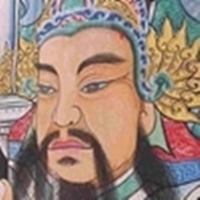Natural Law in Economics
Economic criminality is the most dangerous aspect of how we as humanity have strayed from Natural Law.
There is a natural balance to economics and it is called trading - or better fair trade. Trading has existed from memory. In agrarian economies people produced and traded in markets. At some stage trade and its mechanisms began to change. Firstly people with skills entered the market and possibly at the same time money was used as a means of exchange.
All of this is perfectly reasonable and has no economic issues for humanity; there was of course huge poverty. But let's be clear, at that time humanity was not saintly. Kingdoms were fighting for land not only internally but across the seas. This appropriation of land could produce great economic rewards that the powerful wanted. It was this that led to the first problems of money. The powerful through bank loans mounted wars, and this was the early examples of the war economy that prevails today. Such war needed two inputs - the desire to exploit from the powerful and the economic accumulation of money in the banks.
It is this liaison between the banks and the powerful that dominates global power to this day. What started as a reasonable trading mechanism - money - through accumulation has now become the driving force along with the lust for power and control of the 1%.
Such accumulation could not exist without the trading mechanism of money, and it is this accumulation of planetary resource through a financial mechanism that is so unnatural, that does not follow natural law. By converting natural assets to financial assets as figures in bank accounts the wealthy are able to feel their power yet not experience the shame of their greed. These figures (zeros) do not show the harm they are causing humanity. By accumulating the world's natural resources as a set of figures the 1% do not see the effects of their accumulation, nor do others necessarily see that this accumulation is the source of their problems. If one person owns the whole of the UK and keeps all those people homeless, those people know who is the problem and know what they have to do to deal with their problems. By hiding this wealth in bank accounts and manipulating puppet politicians who are the targets they employ the 1% hide. This is not natural, the transactional power of money is the source of this problem.
But the greed of these people is not limited to accumulating all the existing real world assets, their greed has moved beyond that. They have developed financial mechanisms such as credit, futures, derivatives and what else, to enable themselves to accumulate imaginary wealth. Playing financial games with imaginary wealth might appease their ego but these accumulators have combined real and imaginary wealth into one financial asset - their bank balance. This might not be a problem if it was treated as what it was - real and imaginary assets, but unfortunately the world sees these numbers as only one thing - money. I spent all my life teaching and as a reward I have a small pension that I can comfortably live off yet the total assets of just 3 people are the same as 50% of Americans - they have the money of 400 million Mandtao. And that money is based on real and imaginary transactions.
Money used to be a measure of assets, and it was often seen as based on gold assets (here is a history of gold). To some extent this held back the imaginary economy by requiring the printing of money to be based on the amount of gold. In the Great Depression the US got in trouble and printed their way out of the problem effectively destroying the gold standard. Now there is so much money in circulation. Mostly it is not based on real assets such as gold or land or labour but on imaginary manipulations that enable the 1% to accumulate money into their accounts.
What is so disastrous about this situation is that there is no way out. Our economic system survives on confidence. People go to work knowing they will get some money and some food, they accept this slavery. They accept that governments, economists, academics know enough about what is going on that their wage-slavery will continue to provide them with something. And the 1% continue to get apparently wealthier. But their money is not based on assets as there are not sufficient assets in the world to give the 1% asset-value of their bank accounts because their accounts are based on real and imaginary transactions. And the 1% have the power and influence to realise their assets before the 99%.
Natural law would say return to a standard where money actually represents assets but with all the imaginary money around a return to an asset-based economy is not practical as it would lead to conflict between the 1% and 99%. It would require a bell-curve division of global assets (or some equivalent) that would mean huge absolute and proportional losses to the 1%. And they have the power not to accept that.
In the end Natural law will find a way to prevail but maintaining human civilisation is not a requisite of Natural Law.
|

